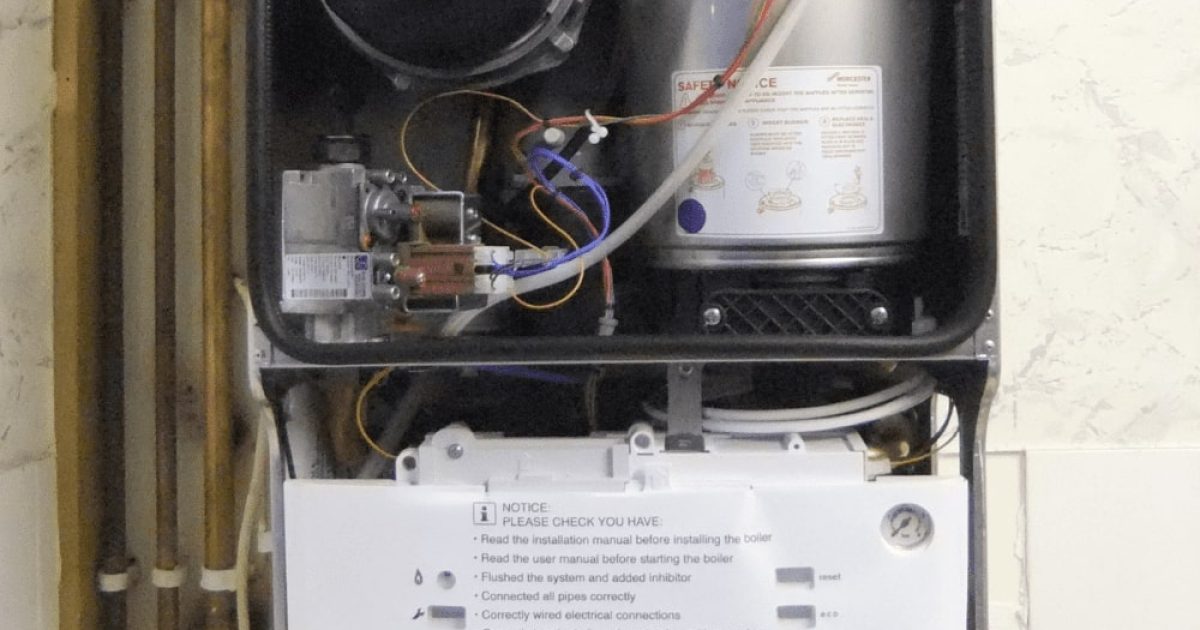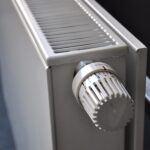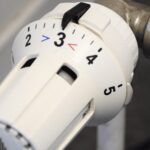Boiler repairs can seem complicated, but worry no longer! This article will help you understand common issues and solutions for boilers in the UK. Think of it as a powerful key that unlocks the secrets of efficient heating.
Just like a detective, we will explore strange noises that may have you confused. We’ll uncover leaks and provide methods for detecting them. And when your boiler’s pressure is low, we’ll explain how to get it back up to speed.
But our investigation doesn’t stop there! We’ll also focus on thermostat malfunctions and offer troubleshooting techniques to get them working again. And because prevention is key, we’ll reveal maintenance practices to keep your boiler running efficiently.
Get ready to tackle any boiler challenge with confidence!
Strange Noises and their Causes
If your boiler starts making strange noises, don’t panic! Let us uncover the mysterious causes behind those unsettling sounds.
Unusual sounds coming from your boiler can be an indication of underlying issues that require immediate attention. A common cause of unusual noises is air getting trapped in the system, which creates a gurgling or banging sound. To troubleshoot this, you can bleed the radiators to release any trapped air.
Another possible cause may be a faulty pump or motor, resulting in a humming or buzzing noise. It is recommended to contact a plumbing professional to repair or replace the faulty component.
Ignoring these unusual sounds can lead to larger problems and potentially expensive repairs in the future, so it is important to address them promptly using these troubleshooting steps.
Leaks and How to Identify Them
To effectively identify leaks in your boiler system, it is important to have an understanding of the common areas that may be affected. These areas include the boiler itself, the pipes connected to it, and any valves or fittings. Signs that may indicate a leak include the presence of water pooling around the unit, a decrease in water pressure, or unusual noises coming from the system.
Having knowledge of these key points can assist you in promptly detecting and resolving any potential leaks in your boiler system.
Common areas for leaks
Spotting leaks in your boiler? Let’s explore the common areas where you may find them and discover some simple solutions!
- Pressure Relief Valve: A faulty valve can cause leaks due to excessive pressure build-up. Check for water pooling or dripping near the valve, and if necessary, replace it to prevent further issues.
- Pump Seals: Leaks around the pump area are usually caused by worn-out seals. Examine the pump housing for any signs of leakage and promptly replace the seals to maintain optimal performance.
- Pipe Connections: Loose or damaged pipe connections can result in leaks. Thoroughly inspect all pipe joints for any signs of moisture or dripping water. Tighten loose connections or replace damaged pipes to eliminate leaks.
- Heat Exchanger: A cracked heat exchanger is a common cause of boiler leaks. Watch out for water stains or puddles around this component, as it may require expert repair or replacement.
By being vigilant about boiler leak detection and promptly addressing any leaks, you can ensure a reliable and efficient heating system that keeps you in control of your power needs.
Signs of a boiler leak
Have you ever noticed mysterious puddles or water stains around your heating system? These could indicate a sneaky leak in your boiler that’s out of sight. To ensure the safety and efficiency of your boiler, it’s important to detect and fix any leaks quickly.
One warning sign of a boiler leak is an unexpected decrease in water pressure. If you find yourself constantly refilling the system, there may be a hidden leak causing the water to escape.
Another clue is visible water pooling around the base of the boiler or nearby pipes. If not taken care of, this can lead to significant water damage.
Regularly inspecting your heating system for these signs and resolving any leaks quickly can help you avoid expensive repairs and maintain excellent performance from your boiler.
Loss of Pressure and How to Fix It
To fix a loss of pressure in your boiler, follow the instructions provided by the manufacturer. This involves adding water to the boiler until it reaches the recommended pressure level.
Here are some troubleshooting techniques to help you identify and address the issue:
- Look for any visible leaks or dripping pipes, as they can lead to gradual pressure loss.
- Check the pressure relief valve to ensure it is working correctly and not releasing excessive pressure.
- Use a radiator key to release air from the radiators and remove any trapped air pockets that may be affecting the pressure.
- Verify that all valves, including isolation valves and filling loops, are open and functioning properly.
By addressing these potential problems and repressurizing your boiler when necessary, you can restore optimal performance and prevent further damage. Always refer to the manufacturer’s guidelines for specific instructions on maintaining the proper pressure levels in your boiler system.
Thermostat Malfunctions and Troubleshooting
When the thermostat malfunctions, it can cause temperature fluctuations and discomfort in your home. To address common thermostat issues, begin by examining the power source. Make sure it is receiving electricity and the batteries are not depleted.
Afterwards, ensure the settings are accurate and the desired temperature is programmed correctly. If these basic steps do not address the issue, try resetting the thermostat by turning it off for a few minutes and then back on.
If nothing works, you may need to replace the thermostat. Remember to consult your boiler’s manual or contact a professional if you are uncertain about any steps.
By following these troubleshooting tips, you can quickly resolve common thermostat problems and bring comfort back to your home.
Recommended Maintenance Practices
To ensure optimal performance of your thermostat, it is essential to follow recommended maintenance practices.
Clean and service your thermostat regularly to eliminate any dust or debris that may accumulate over time.
Look for signs of wear and tear, such as frayed wires or loose connections, which could affect the efficiency of your thermostat.
Regular cleaning and servicing
Regular cleaning and servicing are essential for optimal performance and to prevent costly repairs. It is important to take preventative measures such as cleaning the interior components, checking for leaks or corrosion, and inspecting the burner and controls. This can help extend the lifespan of the boiler. Professional servicing ensures that all parts are working correctly and any necessary adjustments are made, improving efficiency and reducing the risk of breakdowns or malfunctions. By investing in regular cleaning and servicing, you can keep your boiler running smoothly and efficiently while giving yourself peace of mind.
Checking for signs of wear and tear
It is important to be vigilant for any signs of wear and tear on your boiler. Regular maintenance is necessary to ensure its durability and efficiency. Here are four ways to detect corrosion in your boiler:
- Examine the exterior: Look for signs of rust or discolouration on the metal surfaces, indicating corrosion.
- Check for leaks: Inspect the area around the boiler for any water stains or puddles, which may indicate a corroded pipe or valve.
- Monitor water quality: Regularly test the pH level of the water in your boiler, as high acidity can accelerate corrosion.
- Pay attention to unusual noises or smells: Strange banging sounds or unusual odours coming from your boiler could be a sign of internal corrosion.
By staying vigilant and addressing any signs of wear and tear promptly, you can prevent further damage and costly repairs.
Regular inspections and proper maintenance will ensure that your boiler operates effectively and safely for many years.
Frequently Asked Questions
What are the indications of a faulty boiler pump?
Signs of a faulty boiler pump include low water pressure, strange noises coming from the pump, and inconsistent heating.
To troubleshoot, check for any leaks or blockages in the system. Regular maintenance is essential to prevent pump issues, such as cleaning or replacing filters and ensuring proper lubrication.
Following these steps will help ensure your boiler pump operates efficiently and effectively.
How can I determine if there is a gas leak in my boiler?
To detect a gas leak in your boiler, there are several methods you can use. Begin by smelling for a distinct odour of gas near the appliance. Listen for hissing sounds or check for bubbles in the water when the boiler is running.
However, it’s essential to remember that regular maintenance of your boiler is essential to prevent such leaks from occurring. Scheduled inspections and servicing will ensure the safety and effective operation of your boiler.
What should I do if my boiler keeps tripping the circuit breaker?
If your boiler keeps tripping the circuit breaker, there may be several causes. It could be that the electrical load on the circuit is too high, causing it to overload and trip. Another potential cause may be a faulty component in the boiler’s electrical system.
To investigate this issue, check for any disconnected connections or damaged wires. If you can’t identify and correct the problem yourself, it’s recommended to get help from an experienced professional.
Are there any DIY solutions for repairing a leaking boiler valve?
DIY solutions for fixing a leaking boiler valve: Quick fixes or professional intervention? Is it safe to attempt the repair on your own? Pros and cons.
Repairing a leaking boiler valve can be done as a DIY project, but it’s essential to consider the potential risks. If you have the technical understanding and experience with plumbing systems, you may try quick fixes such as tightening connections or replacing defective parts.
However, if you’re uncertain or uncomfortable working with boilers, it’s recommended to seek professional help to ensure safety and avoid further damage.
How frequently should I arrange for a professional to inspect my boiler?
To ensure optimal performance and safety, it is essential to have your boiler inspected by a professional regularly. The frequency of boiler maintenance varies depending on age, type, and usage. However, it is highly recommended to have a professional inspection at least once a year.
These inspections are crucial as they help detect any potential problems early on, preventing costly breakdowns and ensuring efficient operation. Professional inspections provide you with assurance and maintain the durability of your boiler system.







